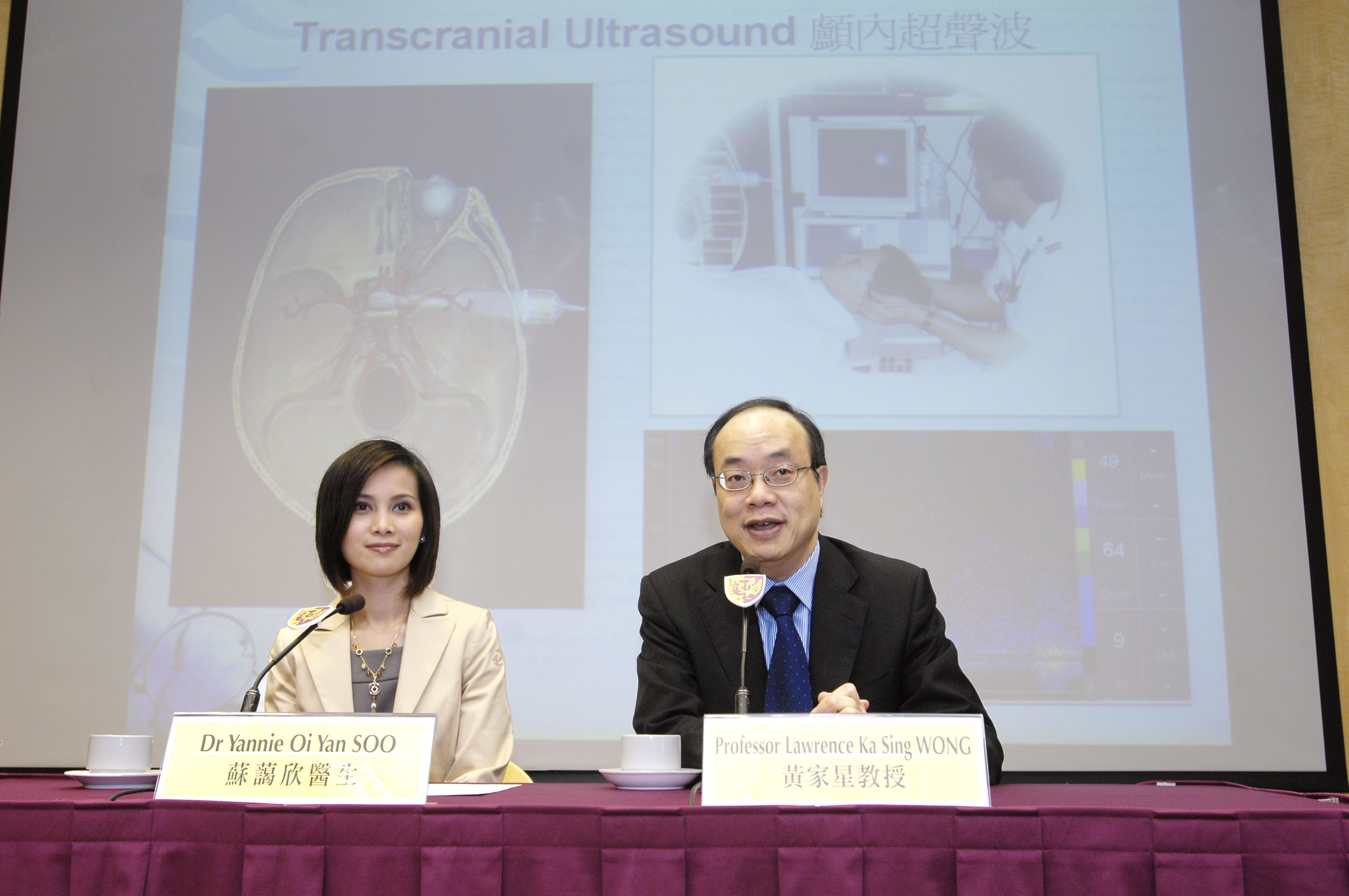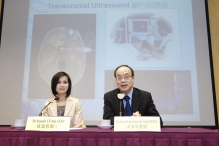CUHK
News Centre
CUHK Introduces New Scoring System to Predict Long-term Risk of Stroke and Death after Transient Ischemic Attack
Stroke is the third most common cause of death worldwide and is the leading cause of disability in adults. Ischaemic stroke is a disease characterized by loss of brain functions due to inadequate blood supply to brain, which can lead to permanent physical disability. Transient ischaemic attack (TIA), on the other hand, is a mild form of stroke that lasts for less than 24 hours. It occurs when the blood supply to part of the brain is briefly interrupted. TIA symptoms are similar to those of stroke but do not last as long. Despite that most symptoms of TIA resolve within 24 hours, TIA can be a warning sign of a more serious stroke, and is thought to precede stroke in 15-26% of patients. Based on symptoms alone, it is often difficult for frontline medical staff to decide who needs emergency assessment after TIA. In the Prince of Wales Hospital, there are more than 100 patients admitted for TIA every year.
The ABCD² score is a simple method, designed by Caucasians, which helps to predict short-term risk (up to 90 days) of stroke after TIA. It is a 7-point score based on five clinical factors (Age, Blood pressure, Clinical features consisting of weakness and speech impairment, Duration of symptoms and Diabetes Mellitus). A score of 6 or above has a 2-fold increased risk of early stroke.
A research team led by Professor Lawrence Ka Sing WONG, Mok Hing Yiu Professor of Medicine, The Chinese University of Hong Kong (CUHK), has modified the ABCD² score to tailor for the need of Chinese patients. As intracranial stenosis is a common cause of stroke in Chinese patients, CT scan of brain (Lesion in CT brain) and Transcranial Ultrasound (Large artery atherosclerosis from Transcranial Doppler) findings are included to form the new ABCD²L² score. This is a 9-point score, and contains additional radiological evidence of stroke and large artery atherosclerosis. This scoring system has been validated in 481 patients in the Prince of Wales Hospital who were admitted for TIA and minor stroke from January 2004 to December 2005. Compared with the ABCD² score, the ABCD²L² score is more effective in predicting the risk of stroke after TIA. Moreover, it predicts the long-term risk (average follow-up period of 40 months) of stroke and death. A score of 8 or above predicts a 5–fold increased risk of stroke in the long run.
In summary, the ABCD²L² score is a scoring system tailored for Chinese patients with TIA. It accurately predicts the long-term risk of stroke and death. In clinical practice, the use of ABCD²L² score facilitates the selection of patients who require emergency assessment and appropriate treatment.
Professor Lawrence Ka Sing WONG (right), Mok Hing Yiu Professor of Medicine, CUHK, and Dr Yannie Oi Yan SOO, Honorary Clinical Tutor, Department of Medicine and Therapeutics, CUHK







